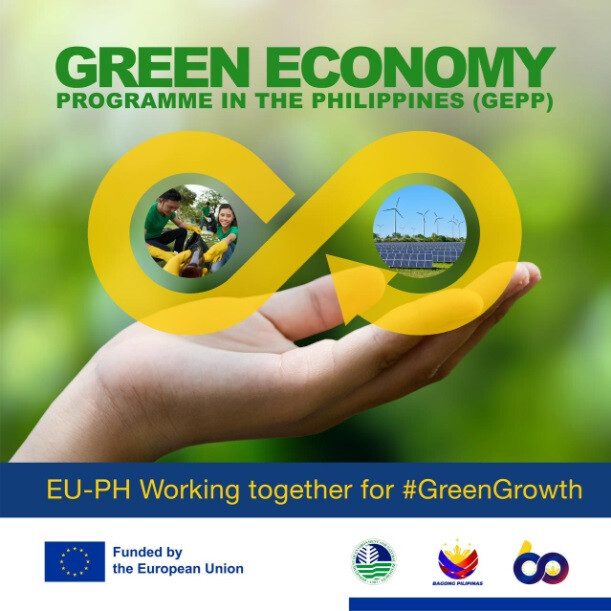
Manila, Philippines – The European Union (EU)-supported and Department of Environment and Natural Resources (DENR)-implemented EU-Philippines Green Economy Partnership (EU-GEPP) program has announced the upcoming launch of its next call for grant applications aimed at supporting the Philippines' transition towards a sustainable green economy.
The EU-GEPP program prioritizes key objectives such as circular economy, sustainable consumption and production, waste and plastic reduction, increased energy and resource efficiency, and the adoption of renewable energy for climate change mitigation. The circular economy, in particular, is expected to offer various benefits, including reduced energy and greenhouse gas emissions, enhanced biodiversity and natural capital, decreased pollution levels, and improved resilience to climate change.
A central component of this program, the ‘Green Local Government Unit (LGU) Projects,’ focuses on strengthening the capacity and implementation capabilities of local government units in the circular waste economy through collaboration with the private sector and civil society organizations. Special attention will be given to Gender Equality, Disability, and Social Inclusion (GEDSI) groups throughout this process.
The program has established four specific objectives (SOs), with designated lead agencies for each:
SO1: Improve the framework for circular economy and climate change policies and reduce greenhouse gas emissions (Lead: German Agency for International Cooperation (GIZ), Department of Environment and Natural Resources (DENR))
SO2 [Green LGU Projects]: Strengthen the implementation capacity of local government units in the circular economy through collaboration with the private sector and civil society, with a focus on youth and gender equality (Lead: Department of the Interior and Local Government (DILG), United Nations Development Programme (UNDP) Philippines)
SO3: Enhance the engagement of the private and financial sectors in the circular and waste reduction economy (Lead: Department of Trade and Industry (DTI), Expertise France, Global Green Growth Institute (GGGI))
SO4: Increase energy efficiency and the adoption of renewable energy (Lead: Department of Energy (DoE), International Finance Corporation (IFC)-World Bank)
Specifically, the ‘Green LGU Projects’ will provide two types of grants to achieve its objectives:
1. Community Grants
These grants aim to support Civil Society Organizations (CSOs) in leading circular economy activities, focusing on the circularity of plastics, organic waste, and the tourism sector, while strengthening the organizational capacity of GEDSI groups.
Priority Areas:Recognition and empowerment of the informal waste sector
Strengthening GEDSI-led circular economy models
Grant Size: Minimum of USD 70,000 to a maximum of USD 80,000 per Civil Society Organization per Local Government Unit.
2. CE Education and Behavioral Change Grants
These grants focus on raising awareness and influencing changes in the attitudes and behaviors of stakeholders towards circular economy principles and practices to integrate circularity into citizen and business practices, production systems, and the business environment. The primary focus is on promoting circularity in the plastics, organic waste, and tourism sectors.
Key Activities:Driving behavioral change among citizens and businesses by identifying barriers to circular practices and implementing tailored solutions.
Strategic campaigns that lead to measurable behavioral changes in support of circular practices among citizens and businesses.
Grant Size: Minimum of USD 25,000 to a maximum of USD 30,000 per Civil Society Organization per Local Government Unit.
Eligibility Requirements
Community Grants: Civil Society Organizations (CSOs) including:Community-based organizations
Indigenous peoples' organizations
People's organizations
Social movements
Volunteer groups
Mass-based membership organizations
Non-governmental organizations (NGOs)
CE Education and Behavioral Change Grants: Civil Society Organizations (CSOs) including:Non-governmental organizations (NGOs)
Non-governmental academic or educational institutions
People's organizations
Youth groups
Social movements
Volunteer groups
Indigenous peoples' organizations
Mass-based membership organizations
Community-based organizations
The EU-GEPP program anticipates that this grant support will further accelerate the Philippines' green economy transition. Interested organizations can contact the program secretariat or visit the official website for more detailed information.
[Copyright (c) Global Economic Times. All Rights Reserved.]




























